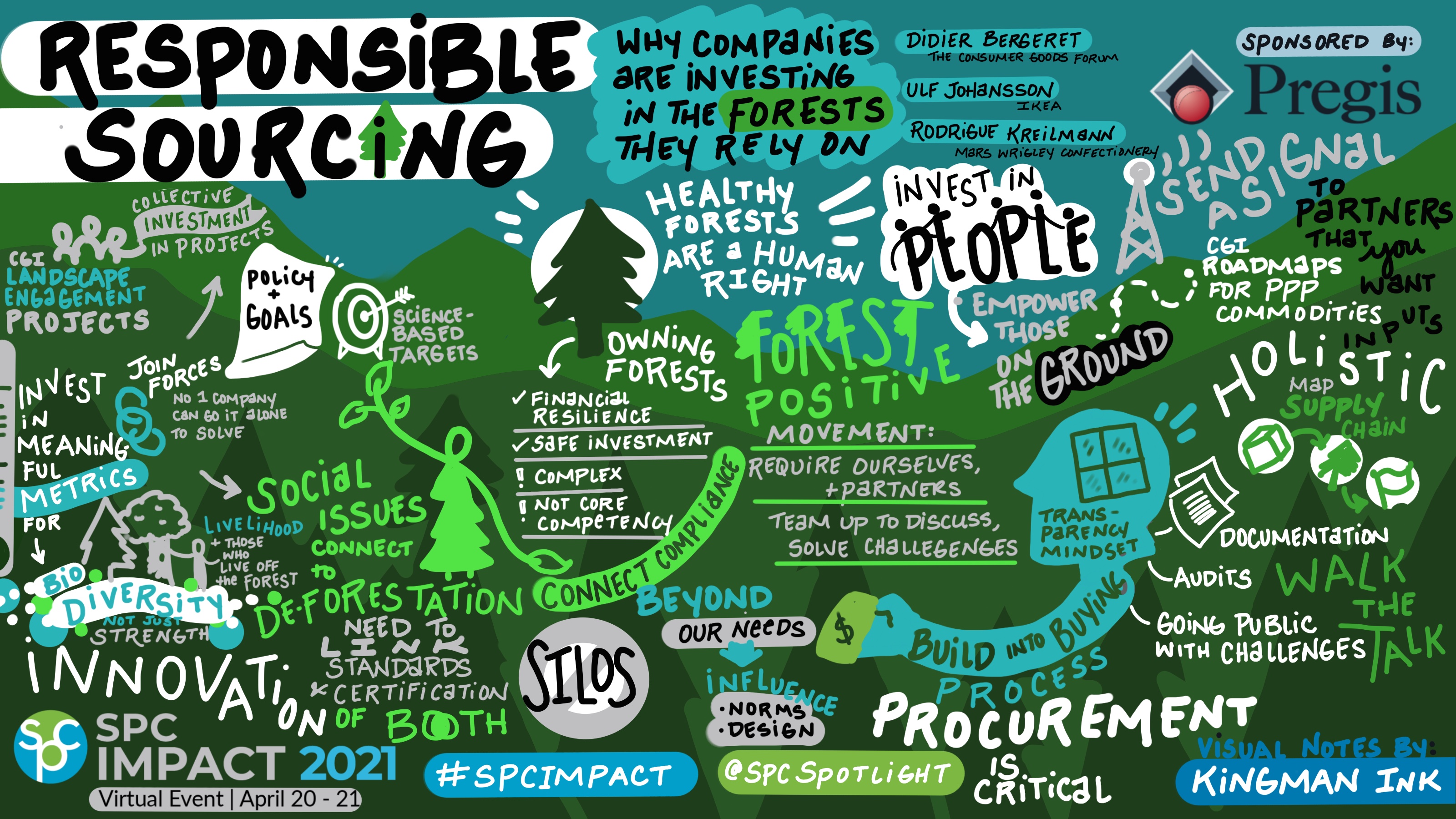SPC Impact 2022: Top 3 Takeaways
Pregis attended the annual SPC Impact Conference event which gathered like-minded brands, retailers, and manufacturers to discuss today’s biggest sustainability challenges and opportunities.
This month the Sustainable Packaging Coalition hosted their annual SPC Impact Conference in San Francisco, CA. The event gathered like-minded brands, retailers, and manufacturers to discuss today’s biggest sustainability challenges and opportunities.
But discussion must produce action. To that end, the diverse stakeholders in attendance mapped the measurable steps we can all take to translate sustainability goals into action.
As a proud SPC member and SPC Impact event sponsor, Pregis is excited to share our top takeaways from the conference:
The journey is long but achievable. All stakeholders at every stage of the value chain must collaborate together to drive systemic change.
One path to save the environment simply does not exist. Instead, it's an interweaving combination of many different stakeholders and processes - from material selection, product design, and manufacturing to collection services, sortation technology, advanced recycling, and consumer education.
Partnership is the cornerstone to sustainability advancement. A good example is Imperfect Foods, who presented their unique business model which helps combat food waste while contributing to the circular economy.
Imperfect Foods operates a direct-to-consumer grocery model which delivers produce and other perishable items with a less-than-perfect appearance. In addition to finding a home for food that does not make it to a grocery store shelf, the company ensures most of their packaging is either reusable, recyclable, or returnable.
For example, Imperfect Foods utilizes 100% recycled boxes, reusable gel packs, and insulated liners to both protect contents and maintain temperature during transport.
Imperfect Foods then goes one step further by partnering with different collection services (such as Dispatch Goods, GO Box, Recyclops, and Tosca) to provide consumers with options to return their packaging for proper recycling.
The evolving regulatory landscape presents a unique opportunity for packaging manufacturers. Eco-Modulation is one example driving material selection and product design.
Eco-modulation is the practice of deterring the use of certain materials which are considered less environmentally friendly with fees and penalties and rewarding the use of materials which are considered more sustainable.
Lorax EPI presented on this very topic. In some European countries such as the UK, Producer Responsibility Organizations (PROs) place fees on the packaging producer.
Some criteria PROs evaluate when assigning fees are:
- How is waste recovery infrastructure financed in the country in question?
- What are the packaging material characteristics (density, flexible or rigid, multi or single-layer)?
- Does product design allow for source reduction, ease of sorting, low processing costs and ultimately have high after-market desirability?
- What current packaging mix exists in the market in question?
- Does packaging contain recycled content, clear labeling, and/or contaminants?
Understanding these criteria can help packaging manufacturers make informed and proactive choices regarding the raw material suppliers they choose, the type of materials they source, and how packaging can be designed, manufactured, sorted, and returned more efficiently.
Recycling technology is an undeniable part of the solution. We must work diligently to improve both mechanical and chemical recycling processes.
Mechanical recycling is the ability to reclaim waste via mechanical methods such as sorting, cleaning, melting, and re-processing. According to Jon Smieja at GreenBiz, our current focus should be on improving collection and separation techniques at material recovery facilities (MRFs), which will, in turn, improve the quality and desirability of the recycled content that is generated from each facility.
Chemical recycling, or advanced recycling, is a broad term that refers to many different processes which essentially break down waste into core components or base chemicals. While chemical recycling offers a promising opportunity for materials that are extracted during traditional mechanical recycling processes like flexibles, the technology (and the demand) is still emerging. Chemical recycling is another avenue of innovation and growth that stakeholders are exploring to improve our recycling infrastructure and capabilities.
Conclusion
After an intensive 3-day SPC Impact conference, it is clear that brands, manufacturers, and retailers are aligned to do better. These stakeholders are working within existing networks and creating new partnerships to facilitate consensus, consistency, and common criteria that push all parties forward towards common sustainability goals. Whether in product and material innovation, closed-loop collection, or recycling technology, the passion, commitment, and progress of SPC attendees and sponsors was on full display. And we look forward to new advancements and to adding our own contributions to the collective goal.

